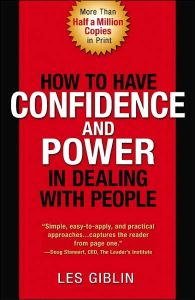Join getAbstract to access the summary!

Join getAbstract to access the summary!
Leslie T. Giblin
How to Have Confidence and Power in Dealing with People
Prentice Hall Press, 1985
What's inside?
This classic guide to getting along with people still holds up after 50 years.
Recommendation
The world has changed so dramatically over the past half-century that many advice books from so long ago are no longer relevant, but Les Giblin’s relationship-oriented work seems likely to endure forever. The ideals he espoused in 1956 still represent the bedrock fundamentals for getting the most depth and satisfaction from your interpersonal connections. You’ll be impressed with Giblin’s grasp of human nature. What’s more, his advice is applicable in all areas of life. He is refreshingly upbeat and unfailingly positive. He clearly believes in humanity’s inherent goodness. getAbstract recommends his warm, sage counsel.
Summary
About the Author
Les Giblin also wrote the bestseller Skill with People.

















Comment on this summary